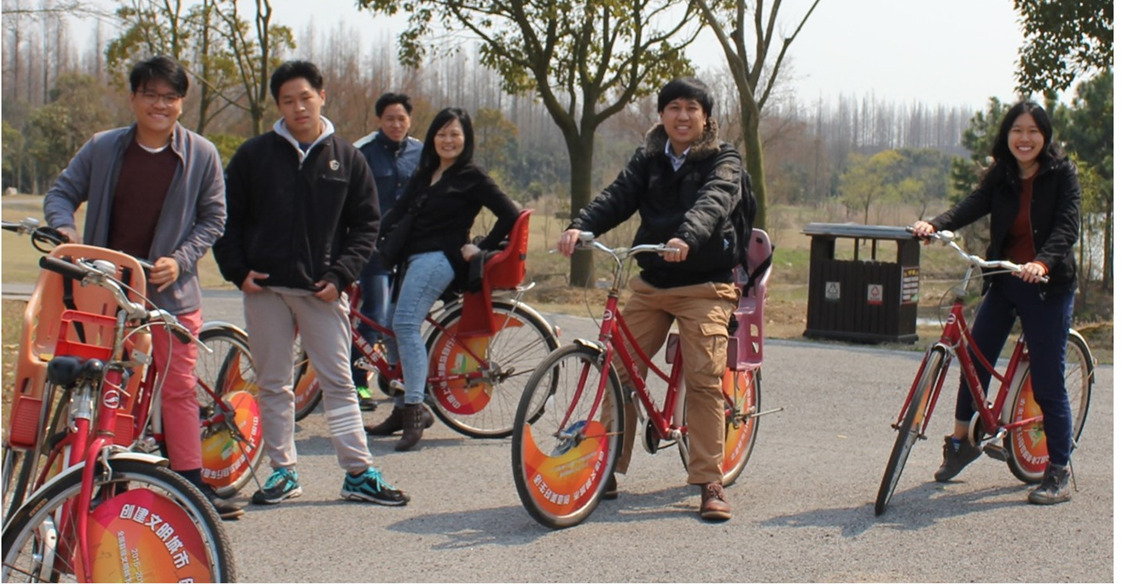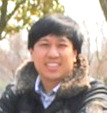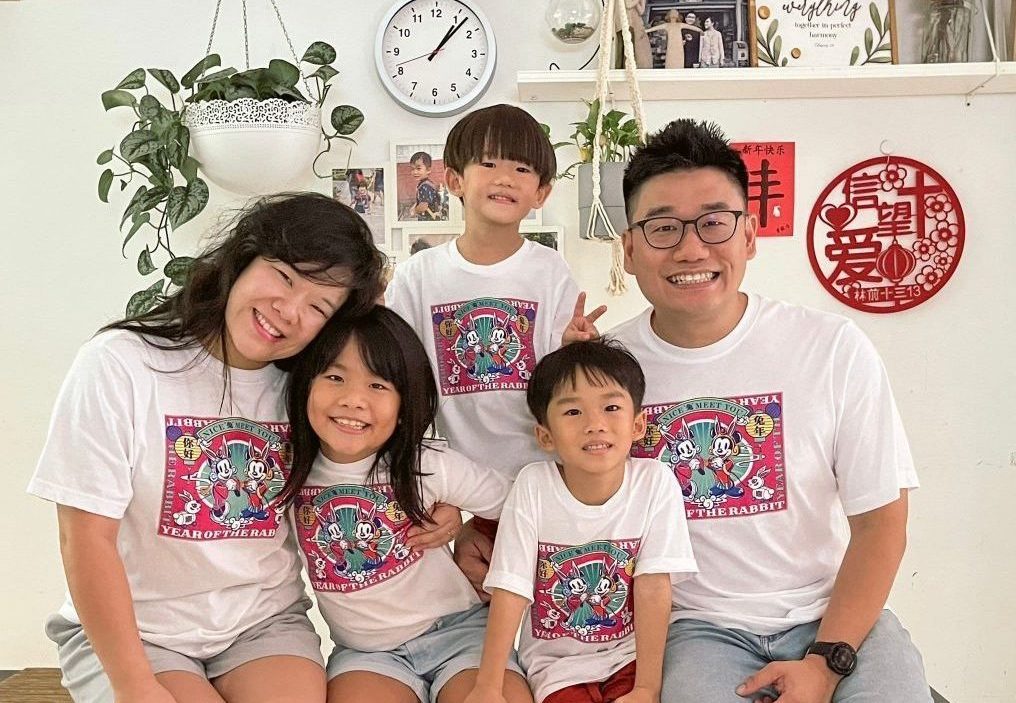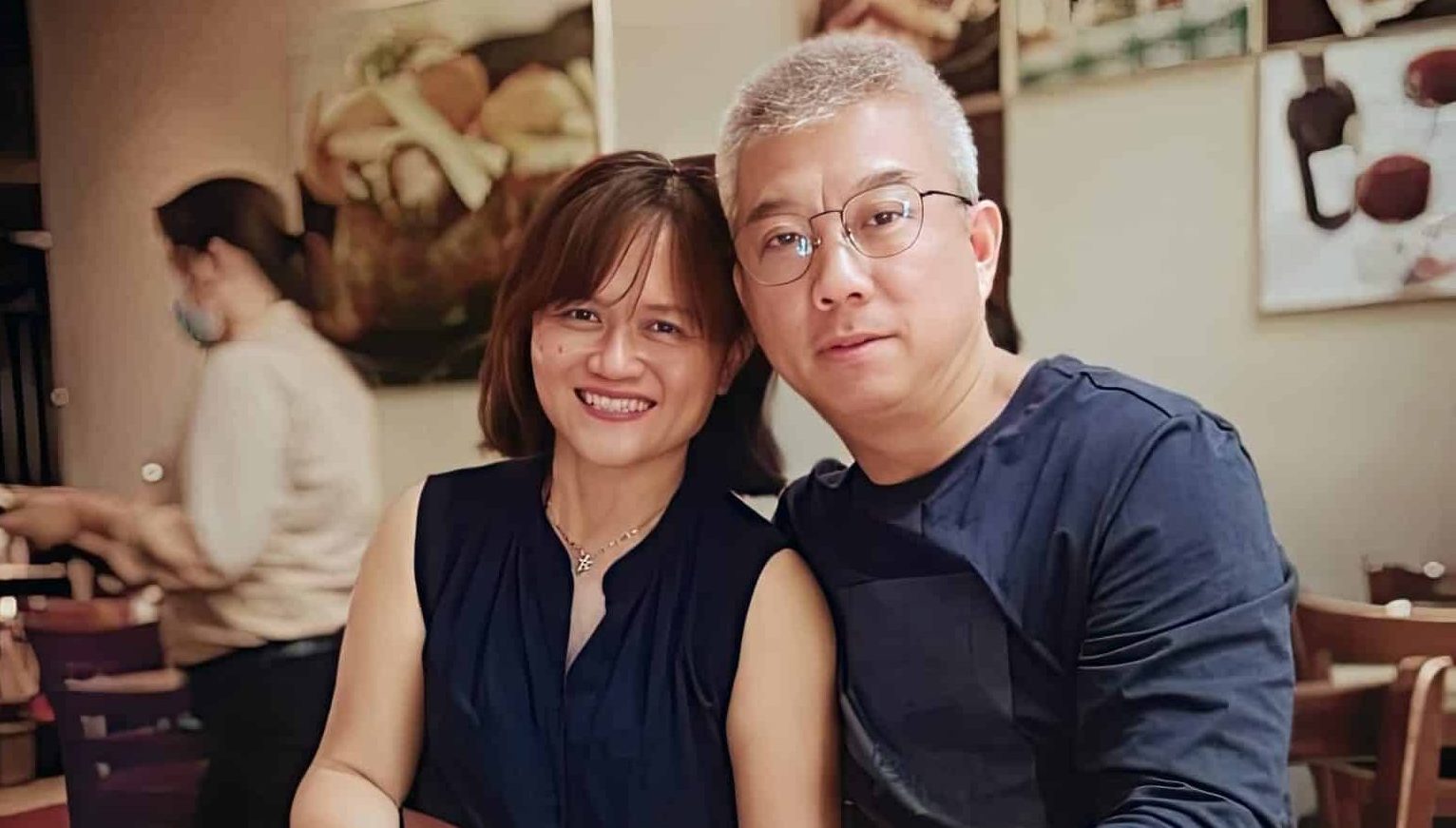What is the purpose of having kids? A question that turned a dysfunctional dad around
Lim Yoon Pin // January 1, 2019, 10:43 pm

Lim Yoon Pin (second from right) and his family during a recent holiday to Shanghai, China. (Photo courtesy of Lim Yoon Pin)
My dad was a kind father.
During my teens, when I lost more than $100 in a taxi, he reimbursed me the full amount without much of a reprimand. I will always remember that act of love with deep gratitude.
However, Dad was also a quiet and passive man, which unfortunately made him rather emotionally distant. I don’t recall him playing with me much as a child, and even as an adult, we did not forge a strong emotional connection.
I failed to exercise spiritual authority and stewardship in my family.
When he passed on, it dawned on me that I never truly made an effort to know my father – what he stood for, his values, his fears and his dreams. This is one deep regret that I still have.
In retrospect, I realise he was not a strong father figure for me to model after.
Parenting damage
Perhaps the lack of a positive fathering model in my own life led me to adopt what I call “freestyle” parenting with my own children. My wife calls it “convenient” parenting.
As far as possible, I stayed within my comfort zone, giving the flimsy excuse that children should have the freedom to make their own choices.
I did not realise that I failed to exercise spiritual authority and the God-given stewardship over my children. My family bore the brunt of my actions.
My skewed priorities also made parenting a struggle.
My sole ambition was to establish my career. I had just received my doctoral degree and was so focused on work that I spent little time communicating with my wife and connecting with my children.
It was irresponsible but it didn’t bother me back then. To be honest, I only loved myself.
Nurturing a toxic environment
I had abdicated my rights as the head of the household.
When our twin sons were born, our family of six stopped going to church and withdrew from the community.
Over the years, my relationship with my children also deteriorated as I morphed into an authoritarian figure who imposed hard-to-reach standards and was critical whenever they fell short of my expectations.
My quick temper created an atmosphere of fear and tension – a toxic environment for everyone.
When my eldest child was 16 years old, my marriage reached a crisis point.
My wife called for a separation as the marriage had become “a meaningless one”. She had borne four children and all I did was abdicate my rights as the head of the household to her.
My eyes were finally opened to my wife’s deep hurt, and we were both in tears that night.
The turning point came shortly after my wife and I had agreed to part.
There is no “lost cause” when it comes to God.
Soon after, we were invited to attend a Father’s Day movie screening at a church, and I had accepted the invitation as a last-ditch attempt to salvage our marriage. As our entire family of six sat watching the movie ‘Courageous’, the scenes tugged at my heart.
I was convicted that I needed a fresh start in my fatherhood journey.
Parent with intention
Once I acknowledged my shortcomings as a husband and father, God began His restoration work in me. I renewed my relationship with my Abba Father, and my own fathering perspectives soon began to transform.
With some discomfort, I signed up for a parenting course after the movie. At that point, I was challenged by a simple yet provocative question: “What is the purpose of having children?”
As I searched for answers, I discovered the role of a father described in Deuteronomy 6:7 – to raise our children and the generations to come as faithful followers of Christ. My perspective as a father changed radically at that point, and I began to see clearly the purpose of my role as a father.
There is no “lost cause” when it comes to God. As I took small steps to reclaim stewardship over my family and children and to prioritise their emotional well-being, I began to see a change in our relationships.
We are good at strategic planning at work, but don’t apply that same rigour when it comes to family.
How is it that we are good at strategic planning in the workplace, but don’t apply that same rigour when it comes to family and children?
With a renewed commitment to my marriage and children, I re-focused on building a God-filled spiritual climate at home.
We now have a regular family devotion and prayer time. My wife and I also recently went on a short couple retreat to take time off for ourselves and to discuss our plans for our family, finances and church ministry.
Transformation takes effort and time. Altering my fathering style is a gradual and challenging process. Indeed, I still face the tussle between wanting to meet my own self-centred needs, and loving my children.
However, being aware of my own weaknesses has helped me to be intentional in my actions, which over time, has created healthy habits. My wife now has a husband who cares for his family with the love of our Heavenly Father, and my children, a father who has changed from an authoritarian figure into a loving and accepting parent.
This was written for and first published by Focus on the Family Singapore and is republished with permission.
Focus on the Family provides relevant Christian advice on marriage, parenting and other topics. They also run a practical parenting workshop, Parenting with Confidence, that aims to equip participants with the essential tools needed to raise independent and resourceful children. Workshops are available for different age categories of children.
We are an independent, non-profit organisation that relies on the generosity of our readers, such as yourself, to continue serving the kingdom. Every dollar donated goes directly back into our editorial coverage.
Would you consider partnering with us in our kingdom work by supporting us financially, either as a one-off donation, or a recurring pledge?
Support Salt&Light




